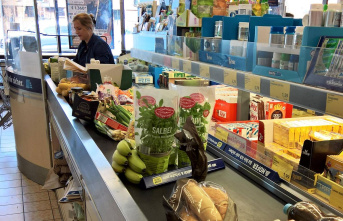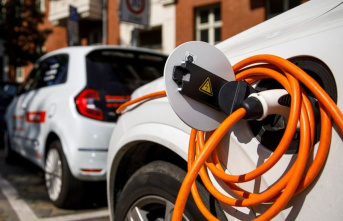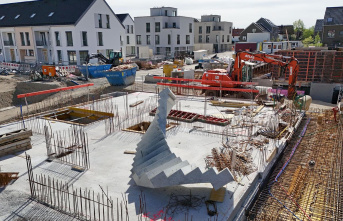Germany passed the cycle climate test of the General German Bicycle Club (ADFC) again with "sufficient". The approximately 245,000 participants in the non-representative ADFC survey only gave the state a grade of 3.96 in terms of bike-friendliness, as the association announced in Berlin. Since the previous bicycle climate test two years ago, the mood has even tended to deteriorate (result at the time: 3.93).
The big cities also still have some catching up to do, as can be seen from the results of the survey that the ADFC conducts every two years to choose the most bicycle-friendly cities and communities in Germany. Many cyclists feel unsafe. They criticize cycle paths that are too narrow, too many cars parked on cycle lanes and the risk of accidents at construction sites.
Bremen - Hannover - Frankfurt
Among the cities with more than 500,000 inhabitants, the participants rated Bremen as the most bicycle-friendly, closely followed by Hanover and Frankfurt am Main. But even the Hanseatic city on the Weser only got a grade of 3.57 - at most "satisfactory".
"It's a trend that we're observing with concern," said the ADFC's political director, Ann-Kathrin Schneider, when the results were presented. "Basically, people are not becoming happier, but unhappier. They have less fun cycling."
Nevertheless, a slight upward trend in bike-friendliness can be observed, especially in the big cities. The feeling of insecurity tends to decrease. Cyclists have become more self-confident and are increasingly accepted as road users. The cycling climate is improving, said Schneider.
problems in the country
In rural areas, however, the situation is different. "Unfortunately, there is a lot of catching up to do there, rural areas are our problem child," said Schneider. Many people there now rely on pedelecs. The e-bikes enabled them to cover long distances. But the infrastructure quickly reaches its limits.
"We need to close gaps for this," said Federal Transport Minister Volker Wissing (FDP) in Berlin. If a gap in the bicycle infrastructure in the country poses a safety risk, this is an exclusion criterion for the entire route. "That can't be right, you have to change that," demanded the minister. He referred to the steady federal funding for the expansion of the cycling infrastructure in the municipalities.
And he emphasized the important link between bicycles and public transport in rural areas. This requires secure parking spaces at train stations, for example. "We have included all of these things in our funding program," said Wissing. ADFC Managing Director Schneider criticized the fact that nothing has changed in the amount of funding for the municipalities. The federal government has to step up there.
According to the association, the ADFC's non-representative survey is open to everyone, but is aimed specifically at cyclists. In order for well-founded results to be achieved, at least 50 people per city, at least 75 in larger cities with more than 100,000 inhabitants and at least 100 people in cities with more than 200,000 inhabitants must have taken part.
Among medium-sized cities with between 200,000 and 500,000 inhabitants, Münster did best this year with a grade of 3.04. The town of Wettringen in North Rhine-Westphalia received the special prize for rural areas with a grade of 2.0.
The declared aim of the ADFC is for Germany to become a cycling country. According to the association, the federal, state and local governments should be able to do this by 2030.











